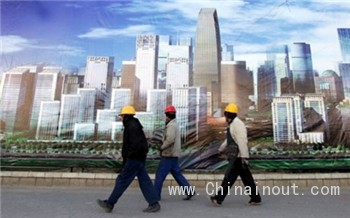現在全世界都在關注希臘,這完全可以理解。對歐元區這個全球第二大經濟集團來說,希臘退歐前景是一個生死攸關的問題。然而希臘經濟規模還不如智利,而后者明顯遭受了更強大的全球經濟力量的影響:中國經濟放緩和亞洲貿易順差日益上升。實際上,就這些問題來說,南美幾乎是“礦井里的金絲雀”。
迄今受影響最大的是大宗商品。例如,油價本周進入了新的熊市,國際基準的布倫特(Brent)原油下跌至每桶57美元下方。這將影響到從委內瑞拉到俄羅斯的所有石油出口國——本周俄羅斯正在第七屆金磚國家(Brics)峰會上作為東道主招待中國、印度、巴西、南非的客人。然而,油價下跌只是更廣泛的大宗商品價格暴跌的一部分,后者在中國引領的繁榮結束后就開始了。
這種暴跌讓澳大利亞等發達大宗商品國家和大片新興市場國家(尤其是南美)感到窒息。這體現在南美地區的增長率急劇下降、進口萎縮、貿易逆差擴大和政府支持率暴跌。在巴西,總統迪爾瑪•羅塞夫(Dilma Rousseff)領導的政府是1986年獨裁政府垮臺以來最不受歡迎的;在全球最大的銅生產國智利,總統米歇爾•巴切萊特(Michelle Bachelet)的支持率下降至27%;在哥倫比亞,總統胡安•曼努埃爾•桑托斯(Juan Manuel Santos)的支持率為28%,他正艱難地試圖與信奉馬克思主義的游擊隊簽署和平協議。整個南美地區上演著類似的故事。在所有地方,領導人支持率下降讓他們更難帶領國家渡過艱難時日。
然而,讓一部分國家受到傷害的因素可能讓另一部分國家受益。例如,在歐洲,大宗商品價格下降有助于抵消希臘危機帶來的不利影響。石油、金屬和農業產品價格下降讓通脹保持在低位,并刺激了消費。它也有助于抵消亞洲經濟放緩的影響——亞洲經濟放緩削弱了歐洲資本品的出口活力。
工業部門與亞洲高度聯動的瑞典,自5年前中國經濟增長達到峰值以來,貿易收支狀況一直在惡化。德國的出口仍有一些增長。但鑒于歐元匯率在過去一年下跌10%,這種表現看起來也不怎么樣。有趣的是,德國對中國的資本品出口正在下降,即便中國政府在不斷發展本國的資本品行業(尤其是機器人)。美國出口在今年5月也出現了下降,主要原因是對中國的資本品和其他出口下降。
無論是南美的大宗商品,還是發達經濟體的資本品,此類貿易疲弱的原因都是亞洲投資縮減。中國進口5月同比大幅下降17.6%,以及亞洲貿易順差持續上升,都體現了它的巨大影響。咨詢公司Andrew Hunt Economics的數據顯示,匯總過去12個月的數據,亞洲貿易順差在今年4月達到約4500億美元,是希臘經濟規模的兩倍。遺憾的是,由于這是進口下降而非出口增加導致的,這也是“錯誤的”的那種順差。
預測模型顯示,復蘇的萌芽可能已在美國、日本乃至中國(盡管上海股市大幅下跌)站穩腳跟。然而,亞洲進口縮減依然嚴重阻礙世界經濟增長。由于大宗商品價格暴跌,南美迄今受到的影響最為嚴重,即便大宗商品價格下跌有助于其他國家。歐洲經濟受到的威脅可能遠不止希臘危機。(中國進出口網)

The global attention paid to Greece is entirely understandable; the prospect of Grexit is an existential problem for the world’s second largest economic bloc. Yet the Greek economy is smaller than Chile’s, which has suffered vividly from more powerful global economic forces: China’s slowdown and Asia’s growing trade surpluses. Indeed, South America is almost a canary in a coal mine when it comes to these themes.
Their biggest effect so far has been on commodities. Oil prices, for example, entered a new bear market this week, with Brent crude, the international benchmark, dropping below $57 a barrel. That will hurt oil exporting countries everywher, from Venezuela to Russia — which hosts China, India, Brazil and South Africa at the seventh Brics summit this week. Yet the oil price dro is only part of a broader collapse of commodity prices that has followed the end of the China-led boom.
This collapse has knocked the wind out of developed commodity countries, such as Australia, and vast swaths of the emerging world, especially South America. This can be seen in the region’s tumbling growth rates, shrinking imports, widening trade deficits and plummeting government ratings. In Brazil, Dilma Rousseff leads the most unpopular government since the dictatorship era ended in 1986; in Chile, the world’s largest copper producer, President Michelle Bachelet’s ratings have dropped to 27 per cent; in Colombia, wher President Juan Manuel Santos is struggling to make a peace deal with Marxist guerrillas, his approval ratings are 28 per cent. It is a similar story across the region. Everywher, leaders’ rising unpopularity makes it harder for them to steer their countries through leaner times.
Still, what hurts one part of the world can help another. In Europe, for example, lower commodity prices have helped offset the depressing effects of Greece. Cheaper oil, metal and agricultural goods have kept inflation down and provided a fillip for consumers. They have also helped counteract the Asian slowdown, which has sapped the export vigour of Europe’s capital goods.
Sweden, with an industrial sector highly geared to Asia, has suffered deteriorating trade balances since Chinese growth peaked five years ago. Germany still shows some export growth. But the performance looks weak given the euro has dropped 10 per cent in the past year. Anecdotally, German shipments of capital goods to China are falling, even as Beijing continues to develop China’s capital goods sector, especially robotics. US exports also dropped in May, led by weaker capital goods and exports to China.
The reason for such weakening trade, be that of South American commodities or developed economy capital goods — is the cutback in Asian investment. Its dramatic effect can be seen in May’s 17 per cent slump in Chinese imports, and the continuing rise of Asia’s trade surplus. Summed over 12 months, this surplus reached some $450bn in April, according to Andrew Hunt Economics, a consultancy, twice as big as Greece’s economy. Unfortunately, because it is due to less imports rather than more exports, it is also the “wrong” kind of surplus.
Forecasting models suggest a budding recovery may be taking hold in the US, Japan and even China, despite the crumpling Shanghai stock market. Nevertheless, the shrinkage of Asian imports remains a powerful deflator on the world economy. Because of the commodity price collapse, South America has so far suffered the most, even as the cheaper commodities prices have helped others. Europe’s economies may well be threatened by more than events just in Athens.











